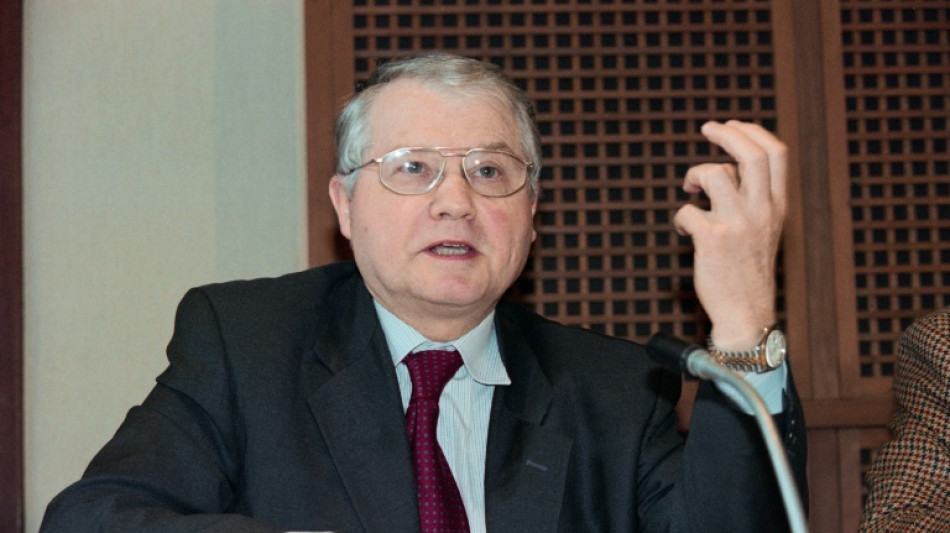

France's Nobel winner for co-discovery of HIV virus dies
French scientist Luc Montagnier, who won the Nobel prize for medicine for his co-discovery of the HIV virus that causes AIDS, has died aged 89, the mayor of the Paris suburb where he was hospitalised said Thursday.
Montagnier died on Tuesday in the American Hospital in Neuilly-sur-Seine northwest of the centre of Paris, its mayor Jean-Christophe Fromantin told AFP. Fromantin said he was in possession of the death certificate.
Montagnier shared the 2008 Nobel Prize in Physiology or Medicine with his colleague Francoise Barre-Sinoussi for their "discovery of human immunodeficiency virus" (HIV), which causes AIDS.
But he was sidelined by the scientific community in later years as he took up positions judged to be increasingly outlandish, notably against vaccines.
His pariah status only increased during the Covid-19 pandemic when he claimed the virus was laboratory-made and that vaccines were responsible for the appearance of variants.
Reports of Montagnier's death had been circulating online over the previous 24 hours, but AFP was not immediately able to get them confirmed as his family did not speak to major news organisations, while the main research bodies he belonged to said they were unable to confirm his death.
This unusual lack of information surrounding such a well-known figure appeared to be a reflection of Montagnier's recent standing in the scientific community.
A former star among French researchers, he had lost their support over the past decade over positions they felt they could not share.
- 'Decisive role' -
"Today we praise the decisive role of Luc Montagnier in the joint discovery of HIV," said the anti-AIDS association Aides.
"This was a fundamental step forward, but one which was sadly followed by several years during which he drifted away from science, a fact we cannot conceal," it said.
Montagnier made his key HIV discovery in the early 1980s when AIDS cases began to soar and infected people had little chance of survival.
His findings laid the groundwork for AIDS treatments, launched 15 years later, that would allow patients to live near-normal lives despite the illness.
The discovery was followed by a long dispute between Montagnier and the team of US researcher Robert Gallo over whose role had been more important. Eventually they agreed that the Frenchman had isolated the virus, while the American had established its direct link to AIDS.
Further controversies followed when Montagnier began to defend theories that were discredited in the scientific community, such as the "water memory" theory which plays a role in homeopathic treatments.
His positions against Covid vaccinations, while raising his public profile during the pandemic, also found very little backing among scientists.
Initial tributes came from marginal political and scientific figures with anti-vaccination positions.
They included far-right politician Florian Philippot who launched weekly anti-vax protests across France.
"He was dragged through the mud although he was right about Covid," Philippot said about Montagnier on Twitter.
Prominent virologist Didier Raoult, himself sidelined among researchers for his views on Covid treatments, praised Montagnier's "originality" and "independence".
The only immediate reaction from President Emmanuel Macron's government came from research minister Frederique Vidal, who said that she felt "emotional" and offered her condolences to Montaigne's family, but made no mention of his recent scientific positions.
burs/jh/pvh
W.F.Walter--MP




